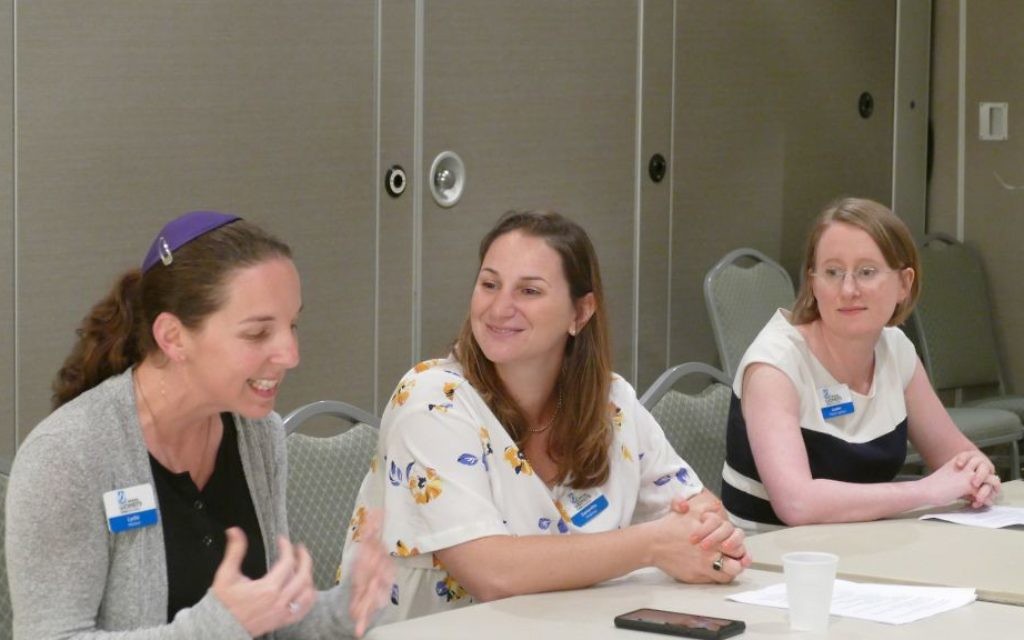Societal Issues Follow Women Into Rabbinate
Three female rabbis share the challenges and joys of their roles in the Jewish community.

Being a female rabbi offers rewards but requires persevering through challenges male colleagues don’t face.
Rabbis Samantha Shabman of Temple Sinai and Lydia Medwin and Loren Filson Lapidus of The Temple highlighted some of the challenges they have faced and their hopes for the next generation of women in the pulpit at the Jewish Women’s Fund of Atlanta panel discussion “Wait, You’re the Rabbi?!” on Tuesday, May 29, at Temple Sinai.
Female leadership in Judaism goes back to biblical characters such as Sarah, Miriam, Deborah and Esther, Rabbi Medwin said, and the line of female clergy begins in 1861 with Rachel “Ray” Frank and passes through Regina Jonas, the first woman ordained as a rabbi in 1935 in Europe.
Get The AJT Newsletter by email and never miss our top stories Free Sign Up
Sally Priesand became the first Reform female rabbi in America in 1972.
But even though the Conservative and Reconstructionist movements also ordain women now, female rabbis are still greatly outnumbered in Atlanta.
Women might make up half or more of some rabbinical school classes, Rabbi Lapidus said, but the hiring in Atlanta doesn’t reflect those numbers. The Atlanta Rabbinical Association has only 13 women among its more than 50 members, and several of them lack recognition because they are not attached to a synagogue.
Rabbi Lapidus said their small numbers put extra pressure on female rabbis to use their voices, as during the 2016 presidential election and the #MeToo movement. Rabbis tried to balance their role as clergy with calls from community members for them to speak out on societal issues.
The problems women face in other professions carry through to the rabbinate, such as being paid less than their male counterparts. Female rabbis thus are discouraged from working as long as male rabbis, leading to fewer women in senior rabbi positions, Rabbi Shabman said.
She said some congregations conduct national searches to fill senior clergy positions while overlooking women who have served their community for years.
Requests for family leave present another issue, the rabbis said. Female clergy members traditionally have been viewed as their children’s primary caretakers, but Rabbi Medwin said they are trying to shift how congregations look at parental roles.
The three panelists said people will always have certain expectations about who female rabbis are and how they look. They want people to feel comfortable speaking to them about a range of subjects, Rabbi Lapidus said, but congregants should be mindful that female rabbis’ experiences could include incidents ranging from comments about their appearance to sexual harassment.
But Rabbi Medwin said female rabbis also are in a good position to mentor other women and to speak up for minorities who might not have a voice. And for every unkind comment, there are dozens of supportive, loving and praiseworthy words that uplift the rabbis.
“Every time that we hear, ‘Oh, you’re the rabbi,’ there is some joy to that being a surprise because we automatically represent the possibility of looking at things differently,” Rabbi Lapidus said.
Rabbi Shabman added, “I think being a woman rabbi has changed the leadership of what a woman rabbi can look like, and I think that enables younger generations to say, ‘I can do anything I want to do.’”




comments